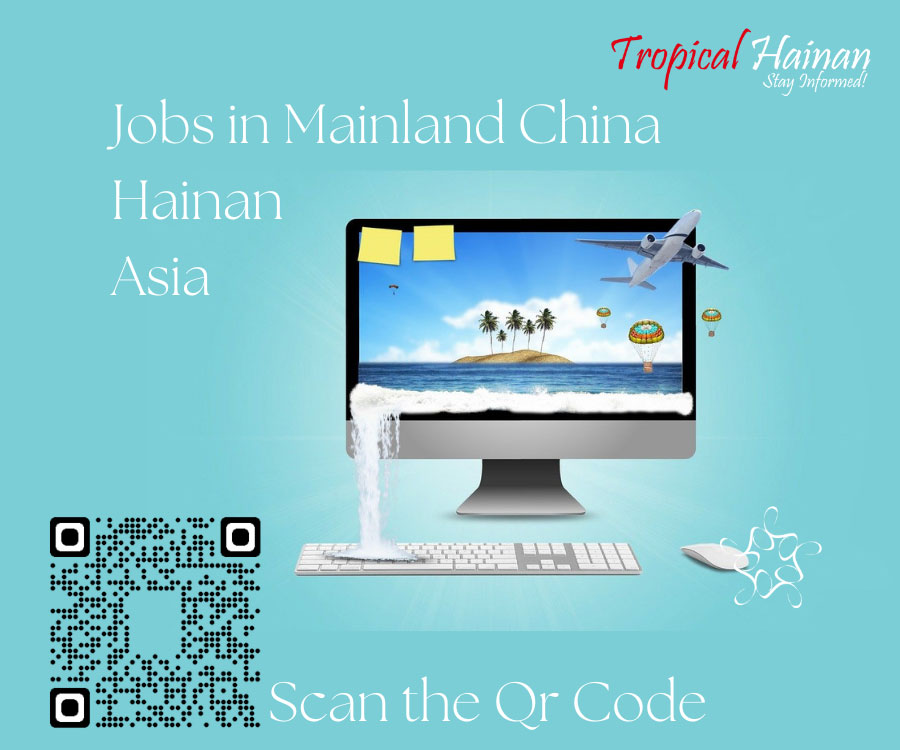Financial & Tax Policies Enterprises in the Hainan Free Trade Port Are Allowed to Open Multi-Functional Free Trade Accounts (EF Accounts)
Enterprises in the Hainan Free Trade Port Are Allowed to Open Multi-Functional Free Trade Accounts (EF Accounts)
Document basis:
Notice of the People’s Bank of China Hainan Branch on Issuing the “Business Management Measures for Multi-Functional Free Trade Accounts in the Hainan Free Trade Port”
(琼银发〔2024〕32号, issued 3 April 2024, effective 6 May 2024)
Lead authority: People’s Bank of China Hainan Branch
1. Policy Overview
Enterprises in the Hainan Free Trade Port (Hainan FTP) may open Multi-Functional Free Trade Accounts (EF Accounts) at eligible banks in the FTP.
EF Accounts are an upgraded, sub-account-based version of the existing Free Trade Account (FT Account) system. They are designed to:
Support the real economy of Hainan FTP
Facilitate high-level trade and investment liberalization and facilitation
Enable orderly and risk-controlled cross-border capital flows between Hainan FTP and overseas
EF Account operations follow the principles of:
“Open on the first line, cross-border management on the second line, and limited cross-border penetration of same-name accounts on the second line.”
(“一线放开、二线按照跨境管理、同名账户跨二线有限渗透”)
By separating EF Accounts from ordinary domestic and foreign currency accounts through account segregation, this system provides the institutional foundation for free and convenient cross-border capital flows while maintaining strong risk controls.
2. What Can Enterprises Do With EF Accounts?
(1) Current account cross-border settlement
Enterprises in the Hainan FTP can use EF Accounts to conduct cross-border settlement of current account transactions (such as trade in goods and services) based on payment and receipt instructions.
Payment instructions must truthfully reflect key information about the transaction background.
They must be sufficient for the bank to report transaction data to the relevant regulatory monitoring systems.
(2) Capital account cross-border transactions (excluding securities investment)
For capital account cross-border transactions conducted through EFE Accounts (other than securities investment):
The usual quota requirements,
Special account requirements, and
Approval procedures of the People’s Bank of China and the State Administration of Foreign Exchange
are not required.
Enterprises do not need to complete prior registration, filing, or special account opening procedures with the foreign exchange authorities for these capital account transactions (again, excluding securities investment).
However:
-
The bank must still understand the background of the cross-border transaction.
-
If the transaction involves areas that require approval or filing with other authorities (for example, outbound investment projects), the enterprise must still complete those procedures in accordance with the relevant national and local regulations.
3. Types of EF Accounts and Eligibility
EF Accounts are divided into four types:
-
EFE Account – For eligible institutions within the Hainan Free Trade Port
-
EFN Account – For eligible foreign institutions
-
EFF Account – For eligible foreign individuals
-
EFU Account – For foreign financial institutions and qualifying domestic financial institutions
Below are the applicable conditions for each type.
3.1 EFE Account – Institutions Within the Free Trade Port
Eligible entities:
Institutions (enterprises and other organisations) within the Hainan Free Trade Port that meet all of the following:
-
Registration period:
Registered and established in the Hainan FTP for at least six months (inclusive);
-
Regulatory status:
Not listed on the key supervision list for cross-border RMB business; In the goods trade foreign exchange receipt and payment enterprise directory, not classified as Category B or Category C;
-
Compliance record:
No major violations of laws or regulations in the past year;
-
Anti-money laundering status:
Not included in high-risk or watchlist categories for anti-money laundering (AML);
-
Other conditions:
Any other conditions stipulated by the People’s Bank of China Hainan Branch or the account-opening bank.
Relaxed conditions for group/parent companies:
For a parent company (group company) registered within the Hainan FTP:
If it has been registered for at least one year (inclusive),
Operates in compliance, with a stable business situation, or
Its business scope is consistent with the industrial development orientation of the Hainan FTP,
then the EFE account opening conditions may be appropriately relaxed.
3.2 EFN Account – Foreign Institutions
Eligible entities:
Foreign institutions (including those from Hong Kong, Macao and Taiwan) that meet all of the following:
-
Registration period:
Legally registered overseas for at least one year (inclusive);
-
Regulatory compliance:
Comply with the “Three Anti” requirements (anti-money laundering, anti-terrorist financing, anti-tax evasion), Follow international practices, and Meet relevant banking regulations;
-
Other conditions:
-
Any other conditions stipulated by regulators and banks.
-
Relaxed conditions for specific projects:
For:
Chinese enterprises that are “going global”; or
Foreign enterprises involved in the Belt and Road Initiative,
the registration duration requirement may be appropriately relaxed.
3.3 EFF Account – Foreign Individuals
Eligible entities:
Foreign individuals (including those from Hong Kong, Macao and Taiwan) who meet all of the following:
-
Presence in the FTP / talent status:
Studying, working, or living in the Hainan Free Trade Port, or Classified as high-end or urgently needed foreign talent under the Hainan FTP’s foreign talent policies;
-
Sanctions status:
Not listed on the United Nations Security Council sanctions list.
EFF Accounts can be used to provide convenient settlement for:
Salary and income payments,
Medical expenses,
Tourism and daily living needs,
Other purposes approved by the relevant authorities.
3.4 EFU Account – Financial Institutions
Eligible entities:
Foreign financial institutions, and
Domestic financial institutions that meet the conditions for sub-accounting and relevant regulatory requirements.
These accounts are mainly used for:
Interbank transactions,
Proprietary operations,
Managing positions and clearing within the multi-functional FT account framework, in line with the Measures and supervisory requirements.
4. Transfers Between EF Accounts and Ordinary Domestic Accounts
(1) Transfers with ordinary domestic RMB accounts of other enterprises
Enterprises in the Hainan FTP may use EF Accounts to transfer funds with ordinary domestic RMB accounts of other enterprises only where:
The transaction relates to goods trade, and
That trade is managed by customs as deemed imports or exports.
Apart from:
These goods-trade transactions, and
Other fund transfers explicitly permitted by the People’s Bank of China Hainan Branch,
EF Accounts cannot be used to transfer funds with the ordinary domestic RMB settlement accounts of other enterprises.
(2) Transfers with the enterprise’s own domestic and foreign currency accounts (same-name “limited penetration”)
Enterprises in the Hainan FTP may use EF Accounts to transfer funds with their own ordinary domestic and foreign currency accounts (same-name accounts), subject to:
-
Quota limit based on equity:
The transfer limit is determined based on the enterprise’s owner’s equity for the previous year, combined with macro-prudential parameters and leverage ratios set by the People’s Bank of China Hainan Branch. At any point in time, the net inflow or net outflow between the EF Account and the enterprise’s ordinary accounts must not exceed the specified limit.
-
Restrictions on use of funds:
Funds transferred from the EF Account to ordinary accounts cannot be used for restricted purposes, including (but not limited to):
Activities outside the permitted business scope or prohibited by law and regulations; Securities investment or other high-risk investment and wealth management products (except very low-risk products specified by regulations); Loans to non-affiliated enterprises where not clearly permitted by the business scope; Construction or purchase of non-self-use real estate.
These rules implement the principle of “same-name limited penetration” to meet reasonable funding needs while controlling cross-border risk.
5. Lead Department and Contact Information
Lead Department:
Division of Macro-Prudential Policy and Financial Market Administration,
People’s Bank of China Hainan Branch
-
Official Website: http://haikou.pbc.gov.cn/
-
Office Address: No. 83 Binhai Avenue, Haikou, Hainan
-
Email: haikouhjc@126.com
-
Contact Number: 0898-68562766
6. Frequently Asked Questions (FAQs)
1. What are the requirements for payment instructions when enterprises in the Free Trade Port use EF Accounts for cross-border current account transactions?
Payment instructions must truthfully reflect the key information on the transaction background and provide sufficient details for the account-opening bank to report transaction information to the regulators’ business monitoring systems.
2. Can enterprises in the Free Trade Port use EF Accounts to transfer funds with the ordinary domestic RMB accounts of other enterprises?
Only in limited circumstances:
Enterprises in the Hainan FTP may use EF Accounts to transfer funds with the ordinary domestic RMB accounts of other enterprises only when the transactions are related to goods trade that customs manages as deemed imports and exports.
Apart from:
These goods-trade transactions, and
Any other fund transfers explicitly specified by the People’s Bank of China Hainan Branch,
EF Accounts cannot be used to transfer funds with the ordinary domestic RMB accounts of other enterprises.
3. Can enterprises in the Free Trade Port use EF Accounts to transfer funds with their own ordinary domestic and foreign currency accounts?
Yes. Enterprises may transfer funds between EF Accounts and their own ordinary domestic and foreign currency accounts (same-name accounts), but:
The net inflow/outflow at any time must not exceed the limit calculated based on the enterprise’s owner’s equity in the previous year and the macro-prudential parameters;
Funds transferred from the EF Account to the ordinary account cannot be used for restricted purposes, such as prohibited investments, non-compliant lending, or non-self-use real estate, as specified in the Measures.
4. Do enterprises in the Free Trade Port need to complete any procedures with the People’s Bank of China or the foreign exchange authorities when using EF Accounts for cross-border settlement of capital account funds (excluding securities investments)?
No. For capital account cross-border transactions (excluding securities investments) conducted through EFE Accounts:
Enterprises do not need to carry out prior registration, filing, or special account opening procedures with the People’s Bank of China or the foreign exchange administration.
However:
Banks must still understand the transaction background;
If the cross-border transaction involves business such as outbound investment that requires approval or filing with other departments, enterprises must still complete the relevant procedures in accordance with the national and local rules.
5. What is an EF Account?
An EF Account (Multi-Functional Free Trade Account) is:
An upgraded version of the original Free Trade Account (FT Account) system;
Operated under a sub-account management structure;
Designed to support the real economy of the Hainan FTP and enable high-level trade and investment liberalization.
It implements:
Account segregation between EF Accounts and ordinary domestic/foreign currency accounts;
The principle of “open on the first line, cross-border management on the second line, and limited same-name penetration across the second line”;
and provides the institutional basis for:
Free and convenient cross-border capital flows between the Hainan FTP and overseas, while ensuring regulatory oversight and risk controls.
6. Which enterprises and individuals are eligible to open EF Accounts?
The following may open corresponding EF Accounts if they meet the detailed conditions:
Institutions within the Hainan Free Trade Port → EFE Accounts
Foreign institutions (including Hong Kong, Macao, and Taiwan) → EFN Accounts
Foreign individuals (including Hong Kong, Macao, and Taiwan) studying, working, living in Hainan FTP, or classified as high-end/urgently-needed talent → EFF Accounts
Foreign financial institutions and qualifying domestic financial institutions → EFU Accounts
(See sections 3.1–3.4 above for detailed eligibility criteria.)
-
Hainan Releases 2026–2030 Masterplan: What the Next Five Years Mean for the Free Trade Port
3 months ago
-
Qualified Foreign Limited Partner (QFLP) — Domestic Equity Investment Pilot in Hainan Free Trade Port
3 months ago
-
Support for the Legal Cross-Border Purchase of Certain Overseas Financial Services
3 months ago
-
Qualified Domestic Limited Partner (QDLP) Overseas Investment Pilot in Hainan
3 months ago
-
Hainan Free Trade Port Tax-Related Professional Services Regulations
4 months ago




